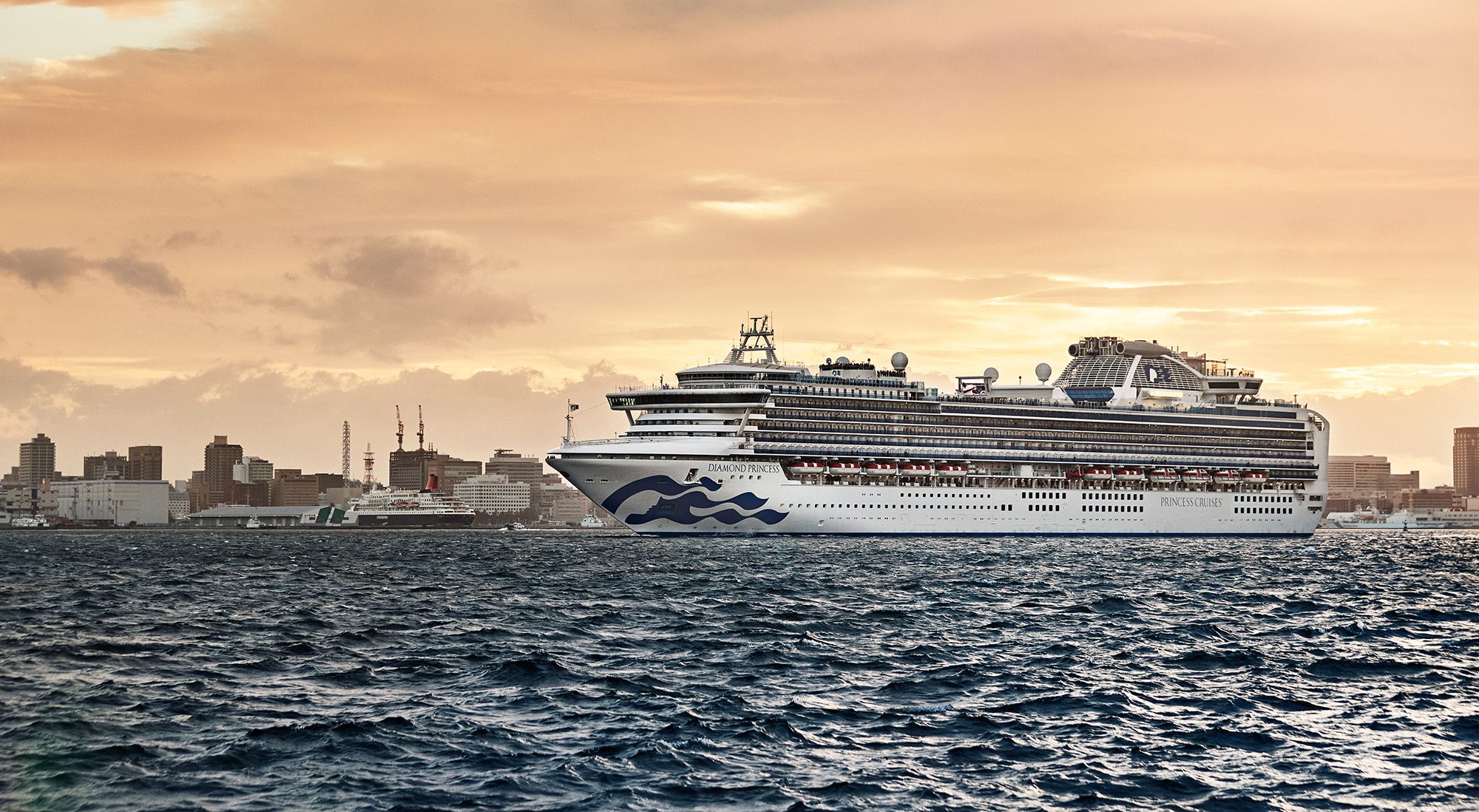 On Saturday, after Vice President Mike Pence met with cruise industry executives in Fort Lauderdale, Florida, it’s easy to imagine the industry breathing a sigh of relief.
On Saturday, after Vice President Mike Pence met with cruise industry executives in Fort Lauderdale, Florida, it’s easy to imagine the industry breathing a sigh of relief.
“The American people value our cruise line industry, it brings great joy and great entertainment value for Americans,” Pence said. “We want to ensure Americans can continue to enjoy the opportunities of the cruise line industry.”
But it was just a day later when already choppy waters got worse. The State Department and Centers for Disease Control both issued their own directives telling U.S. citizens not to travel on cruises, particularly if they have underlying health conditions. The State Department added that citizens who did decide to embark on a cruise should not expect to be evacuated if things go wrong.
The about-face was a massive blow to an industry that has long benefited from flying under the radar when it comes to critically informed media coverage, government regulation, and consumer outrage.
Despite plenty of bad news in recent months — from Carnival’s multiple guilty verdicts for environmental crimes to tightening air pollution standards — coronavirus appears to be the crisis that could have a lasting impact on cruising. It’s also one that lays bare some of the industry’s persistent problems, as well as the unusually fragmented regulatory framework that its business model relies on.
While about half of the cruise industry’s roughly 30 million yearly passengers are American, few of them realize that once they leave a U.S. port and territorial waters, they are no longer protected by the country in which they live or booked the ticket. Health, safety, labor, and other issues on board are governed by flag states — usually countries like Panama, Malta, and Bermuda — which have less resources and regulatory might than the U.S.
Critics have said for years that this structure means cruise ships have lax health and safety attitudes when compared to other industries, like aviation, and that labor practices on board — crew commonly work seven days a week, for months at a time — are in grave need of reform. U.S. lawmakers including Senator Richard Blumenthal of Connecticut have been among those pushing for changes to protect consumers for some time.
Then came coronavirus.
A BREEDING GROUND
The industry’s coronavirus crisis has been centered on a few high-profile incidents, mostly occurring on Princess ships owned by Carnival Corp., by far the industry’s largest company.
The Diamond Princess was quarantined off the coast of Japan in February and, for a while, represented the largest outbreak outside of China. It finally docked with roughly 700 infected passengers, who were quarantined or repatriated home. Meanwhile, passengers from the Grand Princess began disembarking on Monday in Oakland, California, with 21 known cases on board. All passengers are being quarantined. Other incidents include one that occurred on the Holland America Westerdam, also owned by Carnival.
In response to these incidents, the cruise industry has been systematically ramping up its screening procedures, a spokesperson for industry group Cruise Lines International Association told Skift. After Sunday’s advisory from the State Department, CLIA said “we are staying focused on development of an aggressive, responsive plan as agreed to during the meeting with Vice President Pence that goes beyond the already significantly enhanced protocols in place, which we believe are a model for others.”
Carnival told Skift: “While an advisory has been been issued, no restrictions are in place for those who choose to take a cruise. Our brands have enhanced their health screening protocols, which includes thermal scans, temperature checks, as well as other actions, both prior to boarding and on board our ships.” Carnival added that it’s currently in discussion with CDC, World Health Organization, and other health officials. “The health and safety of our guests and crew is our highest priority, and cruising remains one of the most attractive vacation options available.”
While it’s obvious to see how a densely packed and highly social cruise ship might become a breeding ground for an infection, it would be wrong to think of these incidents as unfortunate outliers caused by bad luck in the time of a virus that is battering the travel and tourism industry. In fact, the cruise industry has a long history of infectious outbreaks, with many of them happening on Princess ships.
Since 2010, Princess vessels have had 25 outbreaks, mostly of norovirus, as tracked by the CDC. James Walker, a maritime attorney and vocal cruise industry critic, said the public response to these kinds of incidents is often to blame passengers who didn’t wash their hands properly, rather than try to get at the source of why the outbreak happened at an operational level and stop it from happening again.
“They don’t shut ships down, or send a team of epidemiologists,” Walker said. “They just put a PR spin on it, they reroute the ships, everyone’s back out at sea before you can take any real time to look at the issue.”
While scientists are still figuring out how the coronavirus spreads, it’s been shown that air filtration systems on cruise ships are not as effective as filtering out particles that can spread disease like flu as airplane cabins are. This has raised concerns that cruise ships are actually incubating coronavirus — even as they attempt to implement on-board quarantine measures to contain it.
Carnival did not respond to requests for comment about whether it employs epidemiologists, its history of dealing with infectious outbreaks, or about its air filtration systems on board.
Another aspect that appears to be contributing to the industry’s virus fallout is its modus operandi when things go wrong: Keep sailing. A frequent criticism of cruise lines is their reluctance to halt or amend itineraries or “stop the fun.” It’s not uncommon, for example, when man overboard or missing persons incidents occur on board, for relevant law enforcement officials to have to conduct their investigation around a cruise line’s tightly scheduled itinerary. That is part of the reason some of these incidents remain unsolved, according to groups like the International Cruise Victims organization.
That approach seems to be sparking outrage. A lawsuit was filed by two Grand Princess passengers on Monday who alleged that they would not have boarded the ship if they’d been notified that passengers on board the previous sailing had contracted the virus. It’s not clear if Princess knew about the infected passengers from the former sailing when the plaintiffs boarded the vessel. Carnival did not respond to a request for clarification.
And despite the frequent refrain that the “safety of our passengers and crew is our highest priority,” reporting from the New York Times showed how an unprepared crew and poor communication meant there was a 48-hour delay on the Diamond Princess from when the cruise line became aware of an infected passenger on a prior sailing to when the captain notified passengers, allowing the infection to spread unabated. Carnival provided no further comment on why this happened when asked by Skift.
It’s not just passengers that are crying foul, but ports too. The Caribbean nations that the cruise industry has a symbiotic — if dysfunctional — relationship with seem to be asserting their power. Jamaica, the Dominican Republic, and the Cayman Islands have all turned away ships in recent weeks due to insufficient proof that there were no cases on board.
CAN CRUISING STAND THE SCRUTINY?
The question remains how long this crisis will affect the industry that has enjoyed steadily rising profits in recent years. In the short term, at least, it’s taking a beating. Cruise stocks dropped 20 percent on Monday, compared to the stock market’s 7 percent slide. Carnival Corp. stock opened Tuesday at $23.51 per share, down from $51.35 at the start of the year. Similarly, Royal Caribbean — which withdrew its first-quarter and full-year guidance on Tuesday — has slid from $134.51 at the start of the year to an opening price of $51.03 on Tuesday.
And despite some lines like Royal Caribbean relaxing cancellation policies, travel advisors tell Skift the fallout has been brutal, with cruising being one of the sectors where a significant portion of trips are booked through advisors.
President Trump on Monday indicated a willingness to provide relief to the cruise industry, something Republicans seem reluctant to do. Vice President Mike Pence also seemed to indicate in a press conference on Monday that the administration would request that the industry make reforms to its safety procedures.
“I was in Miami on Saturday,” Pence said at a Monday press conference. “We made it very clear that we needed cruise lines to be safer; to establish and to embrace new protocols; screening on board, screening off; new medical protocols; shipboard processes for evacuating people that may contract coronavirus or a serious illness.” He added that he was awaiting a proposal being worked on by the Coast Guard, DHS, and the cruise industry.
From a consumer standpoint, there’s an important distinction between the airline sector and the cruise industry: Unlike the average air passenger, cruisers often see their vacation habit as an identity. They not only enjoy it, they are likely to defend it — particularly against the classist lifestyle media coverage that often makes fun of it. That could mean a rebound could be in order once things normalize, predicted Tony Peisley, an independent cruise industry analyst and the editor of Cruise Insight.
“Cruising has a loyal following (arguably a larger and more dedicated one than any other holiday type); and consumers are known for having very short memories (particularly when price-incentivized) so, once this particular crisis fizzles out, the industry should recover relatively quickly,” Peisley wrote in an email. “It’s biggest issue might turn out to be in China where the cruise market has not existed long enough to have built up the same resilience.”
That said, other close watchers say the industry is veering on the edge of unprecedented times. It’s not since the Costa Concordia incident — which was limited to one ship in Italy — the industry’s unusual practices have been in international headlines for weeks at a time. And of course, being associated with incubating viral disease isn’t a great way to attract newer, younger customers, something the industry is desperate to do.
Walker, whose law practice is not taking on coronavirus cases despite getting more than 100 enquires, said he was encouraged by the State Department’s warning as a sign that the government is finally paying due attention to the industry.
“Without sounding like I told you so,” Walker said, “this has been a slow train coming.”
[“source=skift”]




